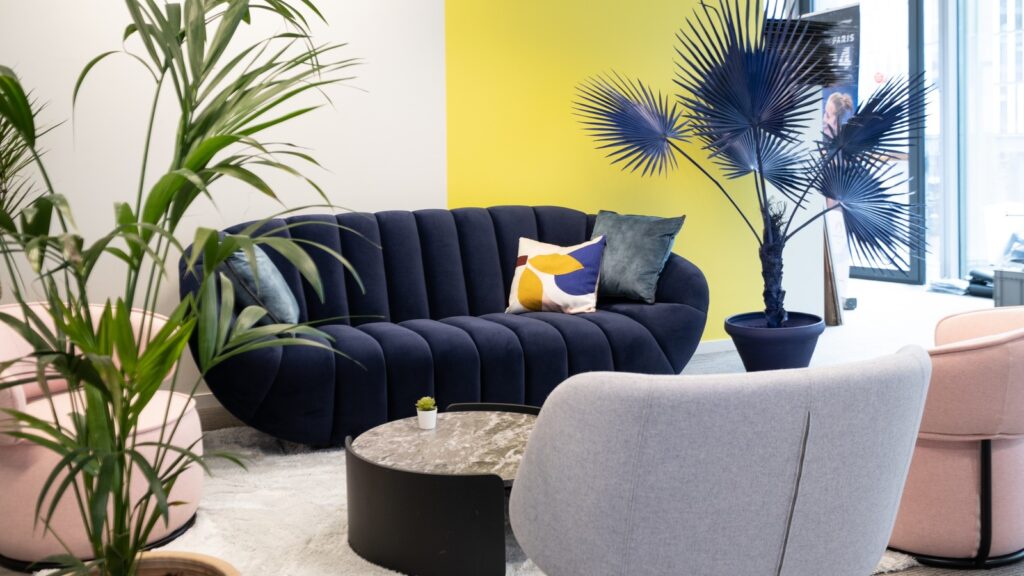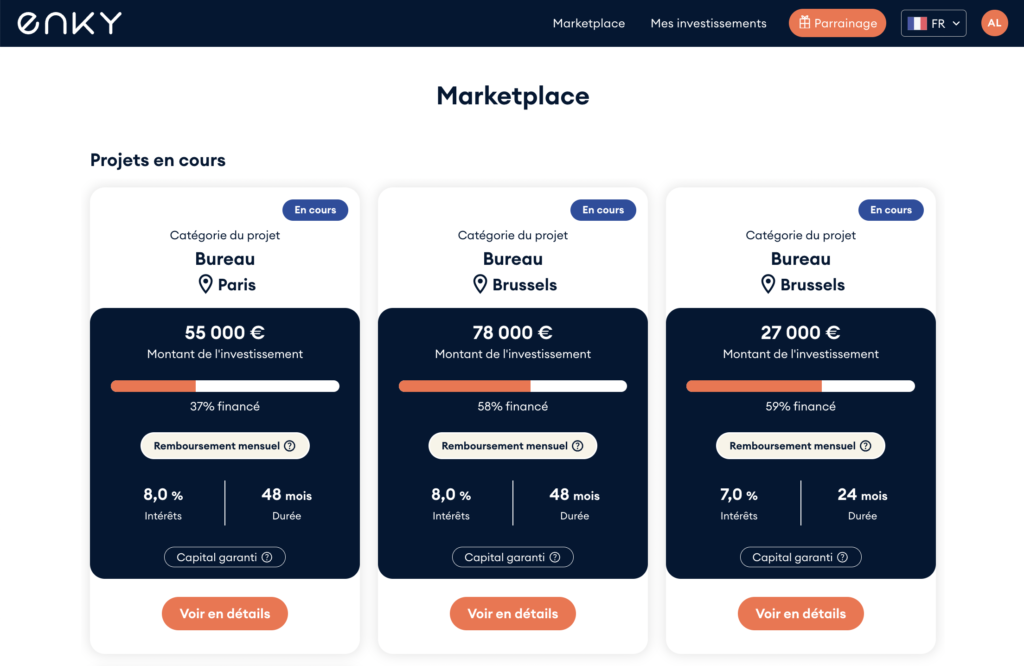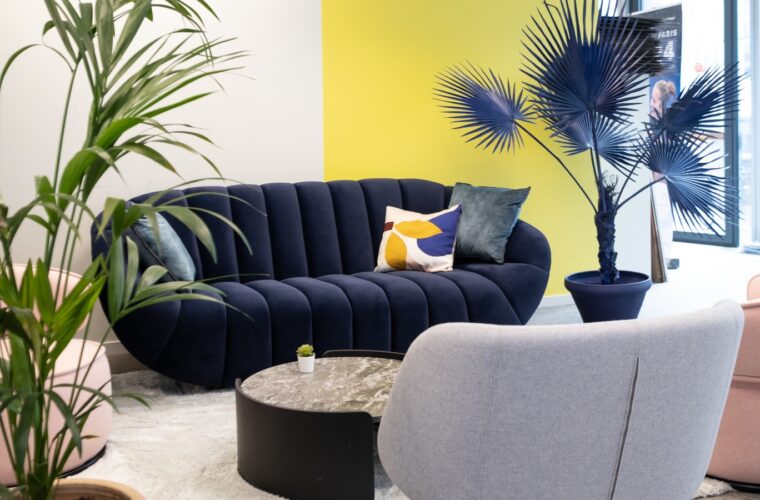What factors do you attribute to the 500% growth in crowdfunding for Enky’s B2B projects within just one quarter?
Enky’s explosive equity fundraising growth stems from a heightened focus on sustainable business practices within the B2B sector. Our model directly addresses Environmental, Social, Governance (ESG), and Corporate Social Responsibility (CSR) goals, offering businesses a clear and measurable path to meeting their sustainability objectives.
Tighter ESG and CSR requirements and a growing preference for sustainable practices have driven second-hand B2B furniture sales to outpace new furniture sales by a significant margin. This shift is especially evident in the commercial furniture market, where stakeholders such as property owners and property management companies, architects and designers, and project managers are prioritising achieving a lower carbon footprint through circular procurement methods. This approach supports both environmental goals, regulatory compliance, and financial efficiency, making it an increasingly popular choice.
The campaign’s success is further fuelled by strong storytelling showcasing our impact on reducing waste and emissions with a well-targeted outreach to stakeholders who value environmentally responsible solutions using stylish, sustainably sourced furniture.
How does Enky’s subscription model for refurbished furniture align with the principles of the circular economy?
The growing demand for flexible, cost-efficient workspace solutions has also encouraged more organisations to consider furniture-as-a-service, further supporting our mission to provide circular, scalable options.
Our subscription model is inherently circular, focusing on reusing and refurbishing furniture to extend its life cycle. This reduces the need for new raw materials and reduces waste, which aligns with the circular economy’s goal of keeping products and materials in use for as long as possible. Furthermore, any materials used are all ethically and sustainably sourced within Europe. Enky also offers a flexible financial model where our customers can choose to buy, rent, return, or refurbish and recycle any items they source through our subscription service, which also helps to maximise the life cycle of the product.
Can you elaborate on the significance of the first mile in your logistics model and how it drives sustainability?
We’ve recently opened two furniture recycling workshops, one in Paris and one in London, closer to our customer base across the UK and mainland Europe. This helps significantly cut down the ‘first mile,’ which is the most expensive in sourcing and delivering furniture items within the industry. This cuts fuel emissions and reduces the carbon footprint.

What key trends in the B2B market, such as ESG and CSR compliance, have influenced Enky’s business direction?
The two elements that have come together are my passion for sustainability and the increasing world attention on ESG and CSR because of the increasing number of extreme weather events across the globe. The COVID-19 pandemic and geo-political events, which caused ructions in supply chains and contributed to a cost-of-living crisis, have forced governments and companies to pay attention to how we live and operate business. The younger generation is also maturing and bringing more force to bear in how they choose to spend their money and invest. My first ‘sustainably focused’ business, Ebedex, concerned the digital transformation of factoring (invoicing) for business. We raised €1Bn for SMBs through that initiative. I hope to do something similar with Inky.
What inspired the founding of Enky, and how has the company’s vision evolved since its inception
Inky was founded to tackle the widespread wastefulness of the furniture industry, one of the most polluting industries in the world. We quickly realised that the B2B sector presented an opportunity to make a large impact. Our vision focuses on reducing resource consumption and emissions through innovative logistics and refurbishment of capital-intensive goods. Enky’s mission is simple: to offer a Furniture-as-a-Service (FaaS) model that not only reduces waste but also integrates directly with businesses’ evolving ESG and financial needs and offers a customer the greatest financial flexibility, which helps them free up much-needed capital to focus on growth.
As we’ve grown, we’ve been able to create a subscription service where investors and customers can choose to sponsor furniture projects, starting at just €500, with guaranteed returns of 6-8 percent. Enky represents over 30 leading brands in architecture and design. Investors can now also invest directly in the company via our unique equity crowdfunding platform, with a minimum investment of £1,000. This also represents something new: an innovative spin on third-party crowdsourcing – we believe this will become even more commonplace across all start-ups as they seek to scale. You do not need to be paying a commission to a third party. Ask yourself why you need to do this when you can harness powerful apps to quickly and cheaply create your digitised platform.


What advice would you give to startups looking to scale internationally while maintaining a strong commitment to sustainability?
Start by embedding sustainability into every aspect of your business, from supply chains to customer engagement. Ensure that your growth strategy includes measurable environmental targets alongside financial ones. Partner with like-minded organisations and stay flexible to adapt to the diverse needs of international markets. Transparency in your impact metrics will also build trust with stakeholders and customers worldwide.
How do you balance the pressures of rapid growth with staying true to your core mission of sustainability?
We maintain balance by integrating sustainability into our decision-making processes. Every business decision and initiative is evaluated against its environmental and social impact. Regular reviews of our processes ensure alignment with our mission, while strategic partnerships with eco-conscious suppliers and clients enable us to scale responsibly and keep us close to our underlying principles.
What milestones are you aiming for in the next two years, and how do you envision Enky’s impact on the global furniture market?
In the coming years, we aim to expand into additional European markets and increase the capacity of our refurbishment facilities. We’re also focused on building partnerships with major corporations to further integrate sustainable furniture solutions into their operations. Our goal is to drive a significant shift in the global furniture industry, proving that circular economy principles can be both impactful and profitable.


